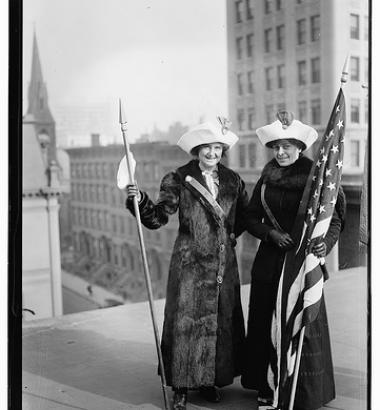It wasn’t very long ago that almost no women were elected to major political offices. In the 1970s there were two female governors, and it was only in 1978 that the first woman whose husband had never served in Congress was elected to the Senate for a full term. Today, many more women hold elected office—there are 17 female senators—but the gains have slowed since 2000.
Scholars offer several explanations: overt discrimination, “situational” factors (e.g., not enough women in the feeder fields of law and business), structural barriers (e.g., the large number of incumbent male office-holders), and socialization (the persistence of traditional gender roles that deter women from entering the fray).
Academic research suggests that overt discrimination is no longer a potent factor. Situational explanations have lost some of their power since women have increased their presence in law and business. And the enactment of legislative term limits in 21 states without subsequent large gains by women has put into doubt the role played by the male incumbency advantage. Situational factors and structural barriers surely play some part, but they cannot account for the size of the gap. That leaves just one candidate: socialization.
Now, two political scientists, Richard L. Fox of Loyola Marymount University and Jennifer L. Lawless of American University, have found, simply, that it is “difficult for women to embrace themselves as politicians.” In a survey of high-level professionals working in law, business, education, and political activism—fields likely to contain people who might run for office—they find that 80 percent of the men believe they are either “qualified” or “very qualified” to hold elected office. Less than two-thirds of the women regard themselves so highly.
Women are also twice as likely as men to say they are “not at all qualified” for the job. (Nine percent do so.) This is particularly striking because women are also more likely to aspire to local, rather than national, offices—positions usually requiring fewer credentials.
Women’s perceptions of the political arena are another deterrent. Just 52 percent say they have a thick enough skin to endure a campaign.
A similar strain of self-doubt appears in studies of women beyond the realm of politics, beginning when they are quite young. Adolescent females, for example, think less highly of their mathematical abilities, despite no objective indicators that males are actually more able. And while females get better test scores in language arts, their self-assessment of their abilities is no higher than males'.
It will likely be a long time before women come close to holding an equitable share of the elected offices in this country. What they have to overcome next, say Fox and Lawless, is a socialization process that breeds self-doubt.
Photo credit: Suffragettes with flag from the Library of Congress
